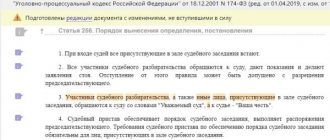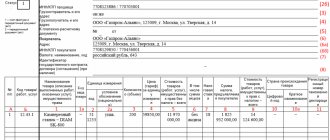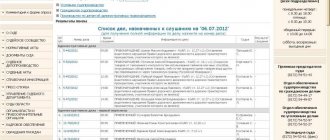Very often you may encounter situations where a court hearing may be closed. This happens for a number of reasons, which are agreed upon in regulatory documents. Most often, this is provided for before the start of the proceedings and is one of the most important principles of justice. If any body departs from this, then the decision may be declared invalid.
Depending on the type of trial, today each closed meeting bears certain distinctive features. These signs will be features, but, nevertheless, you need to know about them and should adhere to them.
What reasons exist?
You can find a closed meeting in cases where criminal liability is involved. This is due to the fact that there are a large number of grounds here than in arbitration and civil cases.
Among the reasons it should be noted:
- During the examination, any secret information that is protected by law may be disclosed. Most often we are talking about state secrets of the country.
- The crime was committed by a person who was not yet 16 years old.
- When considering a case, it is necessary to ensure the necessary security for all participants in the process. Most often, relatives or close persons are also taken into account here.
- The pending case may lead to the disclosure of intimate information. It can be degrading to all involved. 5. When considering a case, it is necessary to examine the correspondence of some people and make it public. Records of telephone conversations, messages, as well as personal materials can be presented here.
If we talk about the grounds in civil proceedings, there are only two of them. These include:
- The process under consideration contains some information that is a state secret or an adoption secret.
- If the interested party requested to ensure the preservation of this or that information. This also includes privacy and other circumstances. If such information is disclosed, the rights and interests of some citizens may be violated.
For the arbitration court, the same grounds are most often provided as for civil cases.
But, legislative acts may also provide other grounds that are taken into account during legal proceedings. Often this will be related to the identity of one or another participant in the process, the need to protect information, as well as ensuring security.
A new “technique” for closing court hearings
There is always an equal and opposite reaction to an action. I. Newton. The third law of classical mechanics.
In April 2021, the Federal Law of April 17, 2017 No. 73-FZ “On Amendments to the Criminal Procedure Code of the Russian Federation” (the long-awaited “lawyer” amendments) came into force. “How good! Finally!" – the lawyers rejoiced. “Well, well,” our procedural opponents grinned.
Amendments to the Code of Criminal Procedure of the Russian Federation provide that the ban on making public the data of a preliminary investigation no longer applies to information announced in an open court hearing. The approach is clear and logical - if the facts have already been considered in the presence of listeners in the courtroom, what kind of secret can they constitute? Changes in the Code of Criminal Procedure of the Russian Federation finally gave defense attorneys the opportunity to bring socially significant aspects of specific cases into the public field, without the risk of being prosecuted and losing their status. Apparently it was too good to be true.
And already in December 2021, my colleagues and I came across a simple and effective “trick” that allows the investigation to very gracefully bypass this annoying obstacle. All court hearings on the selection and extension of a preventive measure in the case of M. and others, in which I participate as a defense lawyer, are held behind closed doors. The case is not classified as “secret” and is not related to state or other secrets protected by federal law, it does not concern minors or crimes against sexual integrity, and when considering the extension of a preventive measure, the interests of ensuring the safety of participants in the trial or their loved ones are not affected. That is, it is obvious that in this case the established Part 2 of Art. 241 of the Code of Criminal Procedure of the Russian Federation grounds for holding a meeting behind closed doors.
Nevertheless, at the very beginning of each meeting, the investigator submits a petition “to consider the case behind closed doors in accordance with paragraph 1 of Part 2 of Art. 241 of the Code of Criminal Procedure of the Russian Federation to maintain the secrecy of the investigation.” It is probably not worth mentioning that the prosecutor declares such a request “legal and justified” and the court, despite the defense’s protests, immediately satisfies it.
When this first happened, I thought that perhaps the goal was to prevent the defendants' support group from protesting in the courtroom. This, of course, is not a reason for holding a meeting behind closed doors, but for the purity of the experiment, I asked only close relatives to come to the next meeting. It was important for me to check whether it was an accident or a system. However, the results were the same - the investigator’s request for a closed regime and its immediate satisfaction by the court.
I will note in the margins that after one of these meetings, I asked the prosecutor how he could support such a petition, much less declare it legal and justified. To which the representative of the supervisory agency quickened his pace down the stairs and, looking away, muttered not very confidently: “Well, when everything in this country will be according to the law... And so - why... Well, they asked.”
After the “closing” of the meeting, all relatives are removed from the room, for whom this is the only opportunity to see their loved ones, since they have not been given visits for many months. The defendants in the case are kept in the most difficult conditions in the strictest isolation ward in the Russian Federation, but even in court they cannot receive moral support from relatives and friends - they are kicked out of the courtroom 5 minutes after the start of the trial. The press cannot attend the meeting, and lawyers are not authorized to give any information on a case that is of particular interest to the public. One of the fundamental principles of Russian legal proceedings – transparency – is being violated. However, the appellate court found no violations. Hearings in the appellate court are already held in open mode, but the appellate court, of course, refuses to re-examine the evidence; the accused cannot see their loved ones - they participate in the court via video conferencing, which during the break of the hearing and immediately after turns off.
A similar situation with the closure of court hearings is developing among my colleagues working on another case, which is also being processed by the same subject of the investigation.
My colleagues and I are considering the issue of appealing this violation to the European Court of Human Rights, but our practice of such abuses is new, there are no precedents yet, so it is still difficult to assess the prospects. And even if the ECHR finds violations, this is a long procedure and a decision can be made only when the described technique becomes widespread.
Therefore, it seems to me important to draw the attention of the legal community and the press to this situation. If now this “circumvention of the law”, as far as I know, is used by representatives of only one preliminary investigation body, which in our country has traditionally for many decades in the courts and prosecutor’s office never refused anything, then in the future this simple and convenient way to deprive the public of any the ability to monitor high-profile cases and prevent the defense from disseminating information to the general public about all violations committed by the investigation can be taken into account by other subjects of the investigation.
I believe that if the described practice becomes widespread, then even the minimal public control over the investigation that exists today will be lost forever. We know from the Russian history of the first half of the 20th century how this kind of lack of control can turn out in conditions when prosecutorial supervision of the investigation raises more questions than answers, and the courts take the side of the investigation in 99.9 cases out of 100.
What are the special features of the procedure?
There are some peculiarities in closed proceedings. You need to know about them before starting the process in order to be aware of everything.
The main ones are:
- The final decisions are made by the judicial body in its own opinion, at the request of the participant. But it happens that the legislation specifies that a decision must be made if there is a petition from any other person.
- the procedure can be open always, or at certain stages.
- The grounds that are applied in the judicial body must specifically reflect the entire essence and indicate the court’s decision.
ATTENTION !!! Persons who submit a petition must justify their request, specify it, and also translate all the necessary arguments.
- a closed type of meeting is conducted in the same way as an open one, but there are a number of special rules and some restrictions.
- Under no circumstances may video conferencing facilities be used during a closed meeting. Since September 1, it was prohibited to use any devices for audio recording.
- Persons who participate in this version of the process are warned that they cannot disclose information after completion. At the same time, administrative liability is provided if a person deviates from a legal rule. This is fair because information about many processes should not be known to all people. Under no circumstances should you distribute the data to others.
If we talk about the practical side, today a closed meeting is different only in that there are no outsiders present. There will be no other participants here who are not declared in the process. Only professional experts, invited witnesses and declared specialists can be present here. Thus, journalists should not be present here either. But, at the same time, you need to remember that even if the meeting is closed, the decision must still be announced openly. But, according to the law, sometimes only the introductory and final parts can be disclosed.
Holding open meetings with restrictions
An open meeting presupposes the possibility of the presence of any persons, including representatives of the media. Journalists are usually attracted to high-profile trials. Ordinary citizens often go to court out of curiosity or professional interest.
In open meetings, those present have the opportunity to record the progress of the hearing, in particular, make audio and video recordings, make written notes, drawings, etc. Sometimes such actions interfere with legal proceedings. To limit the recording of meetings, the court has the right to establish a special ban. This does not make the process closed, but it cannot be called completely open either. Typically, courts refer to an obstacle to an objective examination of evidence, a threat to the safety of participants in the process, and a violation of their rights and legitimate interests. The use of technical means may create noise or other interference with the normal course of the process. This also sometimes appears in the grounds for establishing restrictions.
In order for the court to establish prohibitions or restrictions, a participant in the process may file a corresponding petition. But the final decision is up to the court. Quite often, judges do this so as not to create a stir due to the influx of visitors and journalists in high-profile cases. In this case, such persons are simply not allowed into the room where the hearing is taking place, citing the interference with the conduct of normal proceedings and the calm examination of evidence.
In general, closed meetings are considered a last resort. They are held infrequently. Mainly in criminal cases of sexual crimes, murders with particular cruelty, etc., as well as in almost all cases related to state secrets.
Is it possible to lift the ban on publicity of criminal proceedings?
The openness of trials for criminal offenses is provided for in Article 241 of the Code of Criminal Procedure. According to this rule of law, during open court hearings, participants and citizens present can record the process using audio recording devices. Video recording and broadcast of a court hearing is carried out only with the permission of the chairman of the court.
Resolution of the Plenum of the Supreme Court No. 35 of 2012 “On openness and transparency of legal proceedings” in paragraph 22 draws the attention of the judiciary to the fact that in cases of transfer of a case to higher courts, the order of the hearing is determined by the court, regardless of the format in which the process was previously held.






